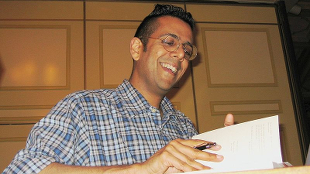 Science writer Simon Singh, who became a standard bearer for the Libel Reform CampaignWIKIMEDIA, STEVE TRIGGA campaign driven largely by the UK science community to reform libel law in England and Wales was rewarded last week (April 24) when Parliament passed a new Defamation Bill designed to make it harder for claimants to suppress free speech, including scientific debate, reported ScienceInsider.
Science writer Simon Singh, who became a standard bearer for the Libel Reform CampaignWIKIMEDIA, STEVE TRIGGA campaign driven largely by the UK science community to reform libel law in England and Wales was rewarded last week (April 24) when Parliament passed a new Defamation Bill designed to make it harder for claimants to suppress free speech, including scientific debate, reported ScienceInsider.
The law will please many scientists because it provides special protection for statements made in peer-reviewed journals. Evan Harris, parliamentary adviser to the Libel Reform Campaign, told ScienceInsider under the new libel rules, “academic journals will have fewer worries . . . about allowing vigorous debate, including commentary on peer-reviewed work.”
Under the current laws, a claimant alleging defamation or libel need only demonstrate that a public statement might inflict reputational damage to take a case to court. Critics argued that the system is skewed in favor of claimants, and that the threat of expensive court cases can force people to keep quiet and deter publishers from putting out critical or controversial statements. After a several high-profile cases drew attention to such problems—including a 2008 ...




















